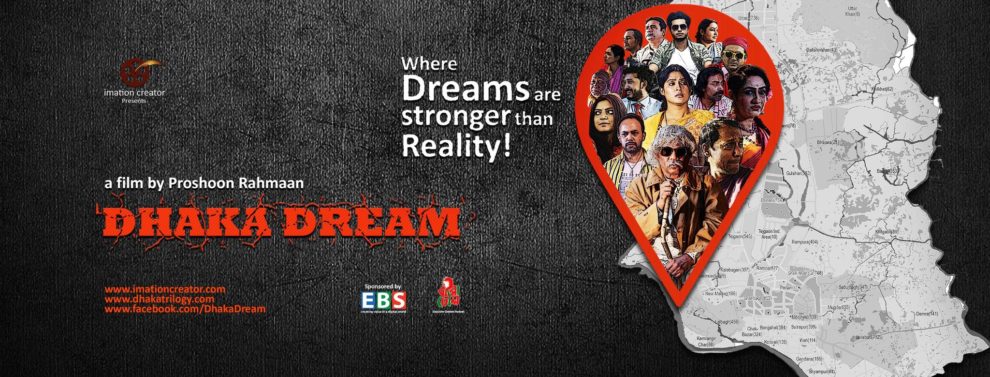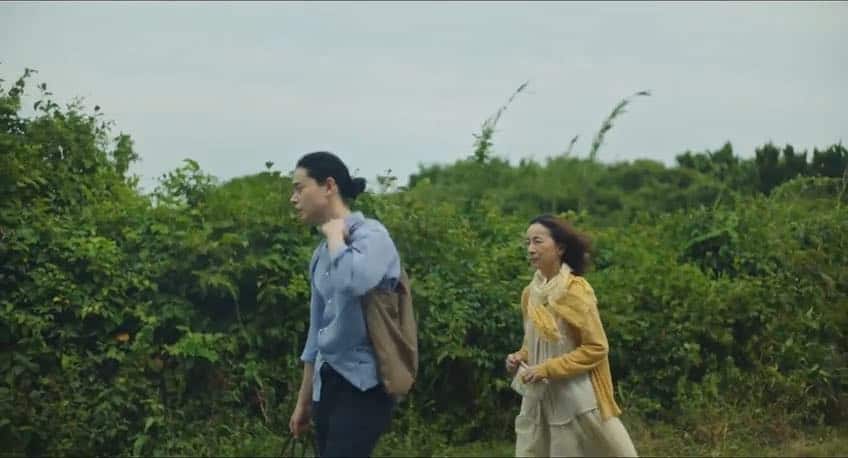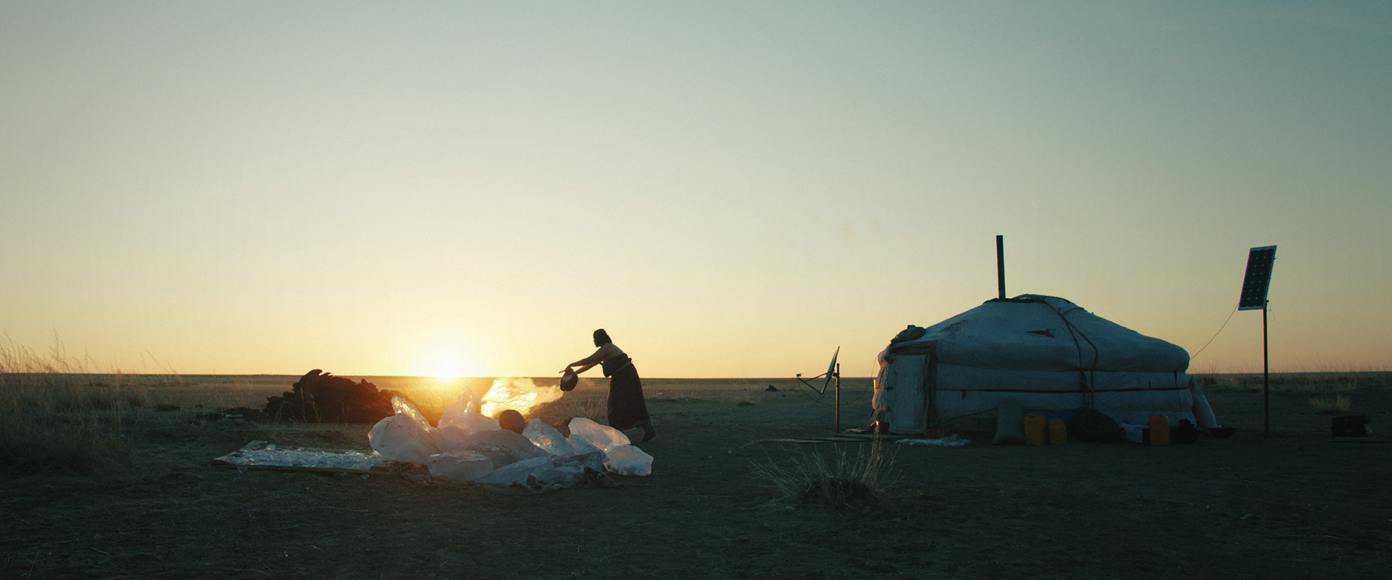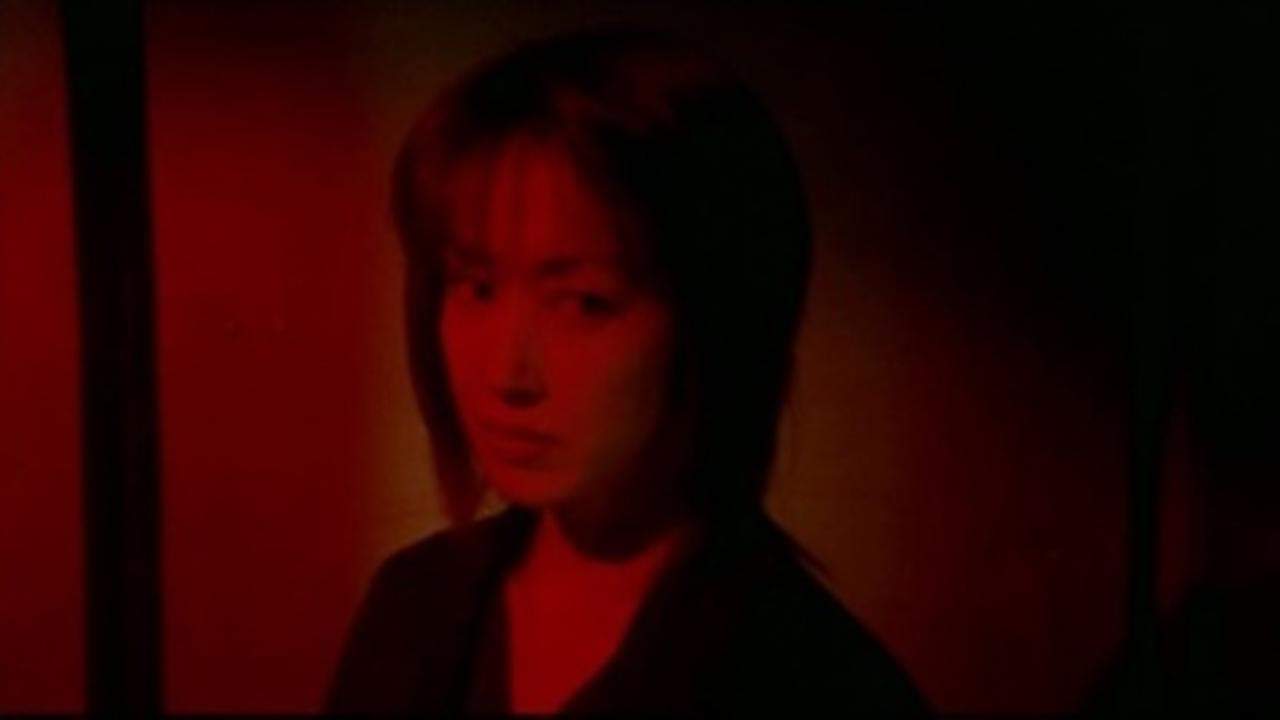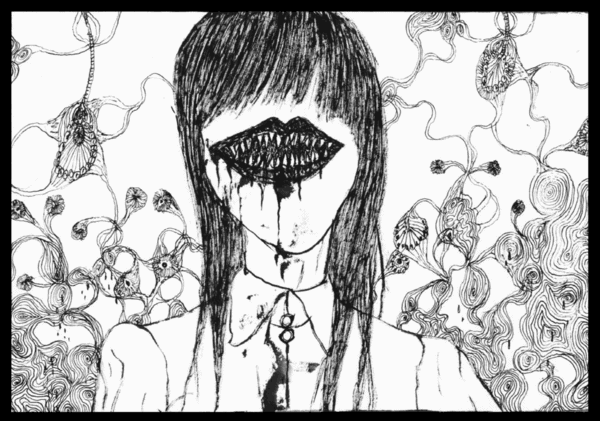Proshoon Rahman's tenth film and third feature, had its international premiere this August at IFFSA Toronto, while it was released in Bangladeshi theatres in October
“Dhaka Dream” review is part of the Submit Your Film Initiative

The film begins with the focus being on a bus going to Dhaka and its passengers, before a fast backward scene brings us to some time before, in a rundown city outside of the capital, where the ten main characters of the film face a number of issues that force them to leave. Nikhil, who is the closest thing to a main protagonist we have in the movie, is the owner of a barber shop he inherited from his father. One day, however, he finds it occupied by a local governor who also happens to run a crime syndicate in the area, and neither the police nor anyone else seems to be able to help him get it back. The rest of the protagonists include one of the henchmen of the said politician, who finds himself exploited by his boss, a young girl with a talent in music who is going to participate in a talent show, two women who end up working as prostitutes, a man who is hired by a company in Dhaka, a carriage driver and a broke performer who tries to make a living through Sharukh Khan impersonations. Lastly, a blind man who makes a living through begging, who also wants to go to Dhaka, seems to be the connection among all the rest, as he is somewhat famous in the area.
Proshoon Rahman uses his many protagonists in order to make a number of comments regarding life in Bangladesh. Corruption, and the ties of politicians with organized crime and the police take center stage, since most of the actions of the protagonists seem to be forced due to this triptych. The place of women in local society, poorness, and the dreams of the people who belong to the lowest “classes” are also commented upon, essentially dictating the reasons so many people in the country feel the need to move to Dhaka, which is the place where most opportunities are to be found.

At the same time, however, Rahman shatters this dream completely close to the end of the movie, in a documentary-style presentation that shows, through newspaper headlines and news on TV how harsh the living conditions in the capital are, a city which is perceived as one of the three worst to live in, in the whole world. The slightly magical event that takes place in the bus also adds to this sense, through a fiction approach this time, which seems, though, somewhat out of context.
This last element is actually the main issue with the film, since, despite its rather dramatic premises, as most of the stories are quite dire, it takes an approach in both dialogues and acting that seems to point towards a fable, with the cheerfulness occasionally being utterly unfit for the overall context, also harming the quality of the performances in that regard. The singing, music-video like moments also move into the same direction, although I can understand this aspect is a characteristic of local cinema which, essentially, cannot be omitted.
On the other hand, Niaz Mahbub's vibrant with color cinematography works quite well in the movie, while Saiful Haque's editing implements a relatively fast pace that suits the episodic nature of the narrative nicely.
“Dhaka Dream” has its merits, and it is a title that can entertain its viewer in times, while Rahman's intelligence in both composition and context occasionally becomes rather evident. At the same time, however, it becomes obvious, almost from the beginning, that the movie would have been better if it stayed on a dramatic path, since Rahman's effort to include as many different narrative elements as possible, ended up hurting the whole thing significantly.


